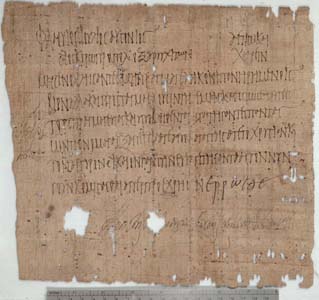![[Loyola University Chicago]](http://www.luc.edu/images/loyola.gif)
CLST 389-01W / CATH 300-01W / HIST 300B-01W / MSTU 398-01W
Classical Backgrounds: Augustine - Writing Intensive
Spring Semester 2012
Dr. Jacqueline Long
Mundelein 308

![[Loyola University Chicago]](http://www.luc.edu/images/loyola.gif) |
CLST 389-01W / CATH 300-01W / HIST 300B-01W / MSTU 398-01W
|

|
 topics
(e.g., religious controversy, sexuality and scandal, women's rights, Classical traditions of literary education),
topics
(e.g., religious controversy, sexuality and scandal, women's rights, Classical traditions of literary education),
 source-materials
(specific works of Augustine and relevant other primary and secondary sources that will help you investigate them),
and
source-materials
(specific works of Augustine and relevant other primary and secondary sources that will help you investigate them),
and  methods
of investigation (e.g., rhetorical analysis, prosopography, correlation with imperial legislation, quantification
and statistics) that
interest you, and begin to consider how they can relate to one another and to
course-materials and topics headlined on the syllabus for our joint work in the
second half of the term.
methods
of investigation (e.g., rhetorical analysis, prosopography, correlation with imperial legislation, quantification
and statistics) that
interest you, and begin to consider how they can relate to one another and to
course-materials and topics headlined on the syllabus for our joint work in the
second half of the term.
 to provide each
individual researcher with a couple of colleagues working on related topics, with whom you can share resources
and insights and exchange feedback on the ideas and arguments you're developing, and
to provide each
individual researcher with a couple of colleagues working on related topics, with whom you can share resources
and insights and exchange feedback on the ideas and arguments you're developing, and
 to work together on a brief joint presentation
that will share some points of interest where your separate projects intersect, with the class as a whole.
For each of the
two possible topics you are proposing, you should state concretely
to work together on a brief joint presentation
that will share some points of interest where your separate projects intersect, with the class as a whole.
For each of the
two possible topics you are proposing, you should state concretely
| Loyola Homepage | Classical Studies Department | Find Loyolans | Loyola Site Index |

Revised 19 February 2012 by
jlong1@luc.edu
http://www.luc.edu/classicalstudies/